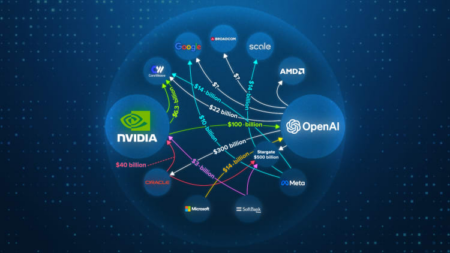As headlines warn of a growing AI skills gap, businesses face mounting pressure to adapt.
Analysts predict millions of roles may go unfilled, prompting universities and training providers to launch bootcamps and fast-track programs.
Meanwhile, channel partners are racing to build AI capabilities or risk falling behind.
But the real challenge isn’t always technical—it’s foundational.
Many organizations are eager to explore AI but lack a structured approach, a shared framework, or even a clear starting point.
Where AI Adoption Often Stalls
From marketers using ChatGPT for content creation to developers testing Copilot for workflow automation, AI experimentation is already happening.
Yet these efforts are often siloed, informal, and disconnected from broader business strategy.
Without a unified roadmap or governance model, AI becomes something that happens around the organization—not within it.
This fragmented approach can lead to:
- Missed opportunities for cross-functional innovation
- Increased risk from unmonitored data sharing
- Lack of visibility into how sensitive information is handled
As AI tools become more powerful and integrated, even simple actions—like uploading internal documents or granting inbox access—can expose critical data without proper oversight.

Rethinking What “AI Skills” Really Mean
The term “AI skills” is often associated with technical roles like data scientists or machine learning engineers.
But this narrow definition overlooks a crucial reality: businesses need people who understand how to apply AI to solve real-world problems.
Practical AI adoption includes:
- Automating customer support workflows
- Enhancing compliance and threat detection
- Streamlining internal processes
These use cases don’t require deep technical expertise—they require business insight, process awareness, and strategic experimentation.
What’s Really Blocking AI Adoption?
The biggest barriers to AI adoption aren’t technical—they’re structural and emotional:
- Lack of formal policies or designated ownership
- Regulatory uncertainty and data security concerns
- Fear of falling behind or exposing internal gaps
For example, the EU AI Act mandates that organizations doing business in the EU must appoint a trained individual responsible for AI oversight.
This raises critical questions about accountability, strategy, and compliance.
AI Skills From Fear to Empowerment
To move forward, businesses must shift the narrative from fear to empowerment.
That means:
- Creating cross-functional AI working groups
- Assigning internal champions to guide adoption
- Offering training beyond IT—especially in compliance and data hygiene
Building a Culture with Responsible AI Skills that Drive Innovation
The most successful AI strategies won’t rely on a few experts—they’ll be built on inclusive experimentation, shared knowledge, and organizational confidence.
Key steps to drive AI innovation:
- Start with awareness and education across teams
- Identify use cases aligned with business goals
- Collaborate with partners and vendors for implementation
- Focus on gradual adoption with realistic expectations
Ultimately, the smartest path forward is not about where you begin, but about having the confidence to begin.








